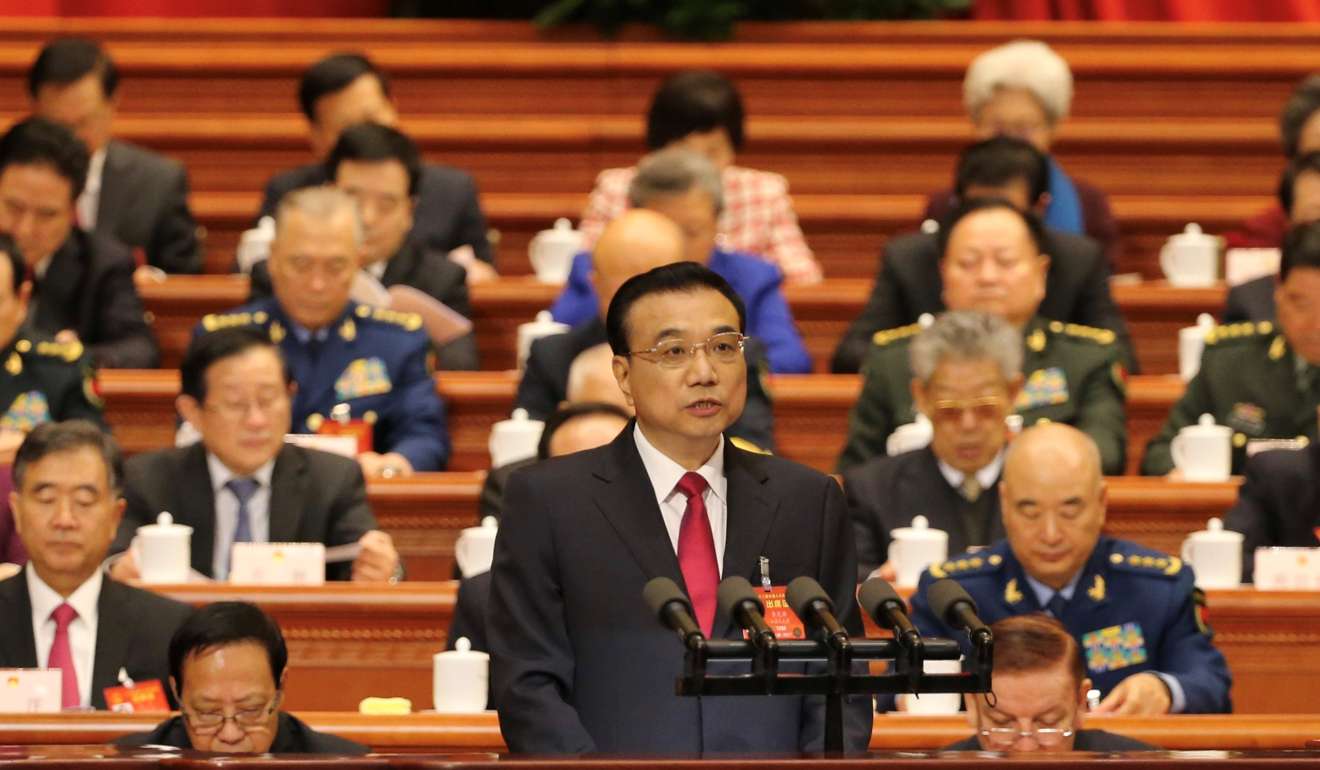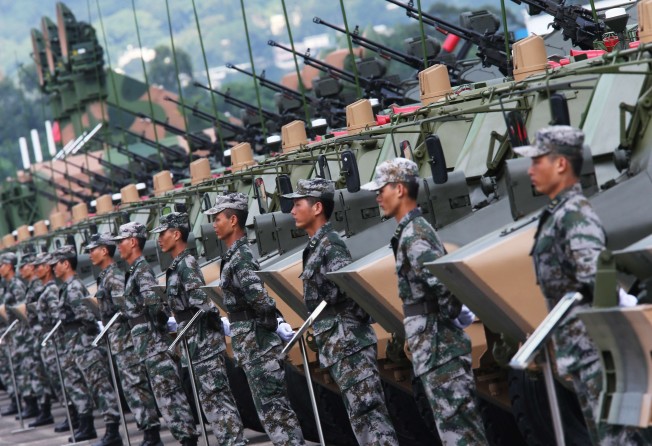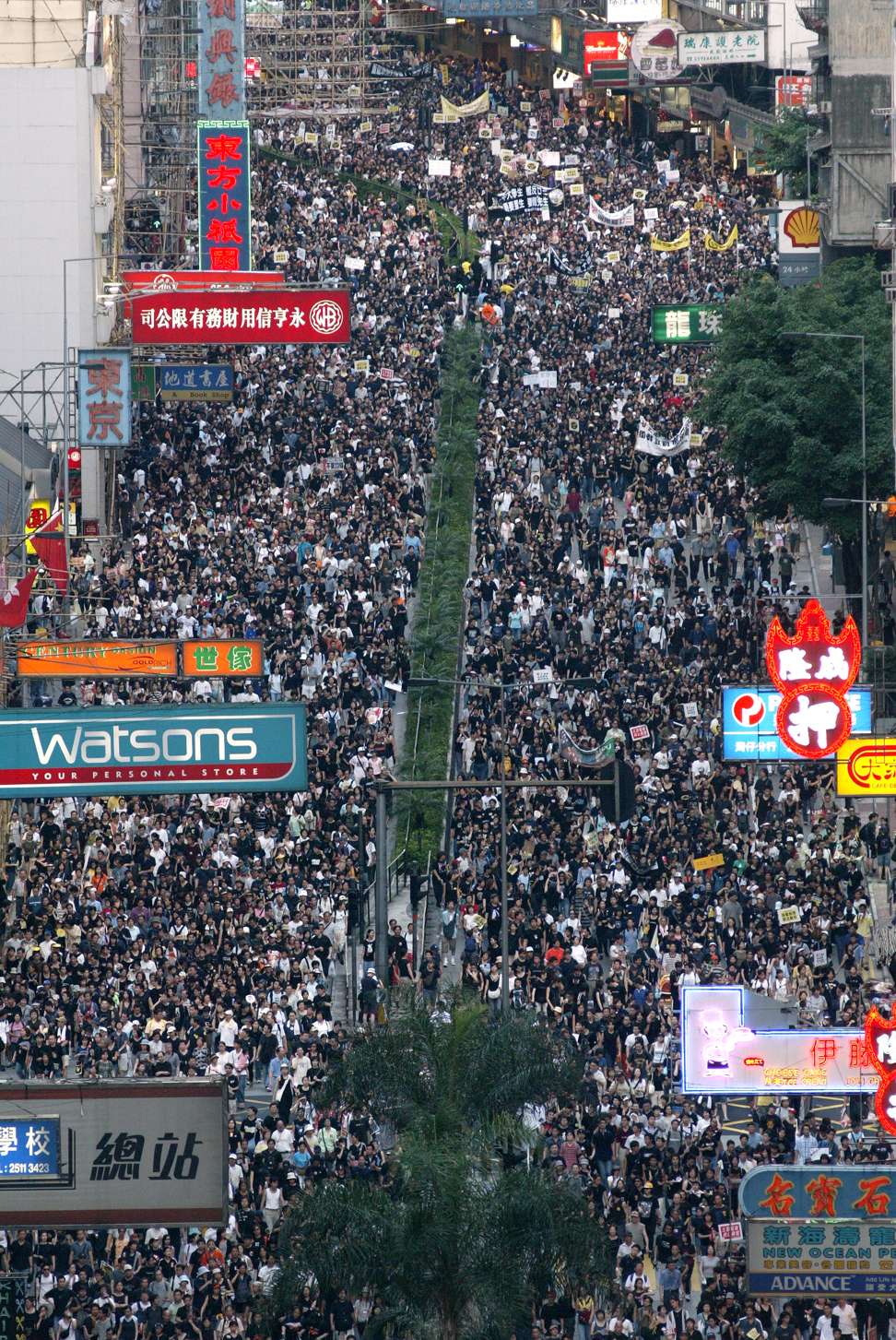
China’s ‘two sessions’ delegates surprisingly outspoken on Hong Kong matters
In a break from the past, delegates with no ties to city make forceful suggestions

From the annual government work report to the musing of delegates on the sidelines, the topic of Hong Kong’s future has been inescapable at the “two sessions” in Beijing - the annual meetings of the China People’s Political Consultative Conference (CPPCC) and the National People’s Congress (NPC).
But this year, in a break from past practice, delegates with no official ties to the city have pushed ideas on how Beijing should approach the special administrative region and respond to calls emanating from some quarters for its independence.
These delegates’ remarks are endorsed by Beijing, according to one expert, and using such proxies to put forward controversial ideas insulates the central government while still allowing it to convey its message.
The “one country, two systems” concept, which ensures a high degree of autonomy in Hong Kong and Macau, has seen very limited discussion, let alone challenges, from mainland officials, lawmakers and political advisors whose offices do not directly involve the city’s affairs since the handover in 1997.

When Hong Kong did become a talking point, it was mostly about business and trade cooperation. Anything related to the city as a political topic has been greatly confined to a handful of officials and scholars in relevant positions.
Mainland media outlets have been allowed limited scope to directly comment on Hong Kong affairs since 2003, when hundreds of thousands of Hong Kong residents took to the street to vent their anger over Article 23 of the Basic Law, which mandated legislation of national security laws.
However, no comments anywhere near as eyebrow raising as this year’s had made their way to the public sphere.
The annual meetings this year saw Wang Hongguang, a retired general and a member of the CPPCC, suggest soldiers from the People’s Liberation Army garrison in Hong Kong should be sent into the streets to quell any unrest the local police could not handle.
“The military presence in Hong Kong is more than a symbol. Their gear is for fighting wars and putting down riots,” Wang said. “If there’s some riot the Hong Kong police is unable to handle, it would be a natural thing for the army to take control.”
The Garrison Law passed by the NPC in 1996 sharply restricts the garrison’s role to defence of the city and forbids it from interfering in local affairs.
Peng Qinghua, the Communist Party boss for Guangxi province, said the NPC’s interpretation last November of Article 104 of the Basic Law, which covers oath-taking by Hong Kong lawmakers, was “very encouraging” and “efficient”.
Two newly elected lawmakers, Yau Wai-ching and Sixtus Baggio Leung Chung-hang, were disqualified for swearing allegiance to the “Hong Kong nation” and using an offensive mispronunciation of “China”.
Neither Wang nor Peng currently have any official duties relating to Hong Kong affairs. Wang was deputy commander of the Nanjing military area command, now subsumed into the Eastern Theatre Command. Peng was director of the central government’s liaison office in Hong Kong five years ago before being appointed to Guangxi.
Having such delegates speak out on Hong Kong affairs was unusual, said Tian Feilong, an associate law professor at Beihang University in Beijing.
“This is quite different from the tradition that only Hong Kong officials or those who oversee Hong Kong affairs make public comment on the city,” Tian said. “It seems to the Chinese that the problem of Hong Kong independence takes more than one department to solve.”
It was also a sign of Beijing’s “zero-tolerance” towards the independence movement, he said.
The strength and size of the movement is open to debate. While some supporters within the localist camp have advocated separation from the mainland, a survey by the Chinese University of Hong Kong last year found support for such a move was 17.4 per cent. The majority of the 1,010 Cantonese speakers polled – 57.6 per cent – were somewhat or strongly against the idea. For many Hongkongers, the independence movement sits is on the fringe of more pressing political concerns, such as Beijing upholding its promise to honour the “one country, two systems” that guarantees the city a high degree of autonomy.
If there’s some riot the Hong Kong police is unable to handle, it would be a natural thing for the army to take control
But the threat of Hong Kong separatism is real enough in the eyes of the central government that is gave it a prominent place in the work report, which Premier Li Keqiang delivered on the opening day of the NPC session, saying such calls would “lead nowhere”. The report listed the interpretation of Article 104 as an achievement.
The CPPCC, meanwhile, credited itself with encouraging members to voice support for the interpretation in its official working report.
In another surprising move, Yu Hongjun, a CPPCC delegate and former top diplomat, said he would submit a proposal to amend the city’s mini-constitution to allow mutual secondment of officials across the border.
Hong Kong-based China watcher Johnny Lau Yui-siu said such moves could indicate Beijing’s growing impatience to assert its control over the city.
“It looks like freedom of speech at first glance, but we all know such comments are endorsed by Beijing,” Lau said. “Beijing could use its surrogates to release signals it’s not convenient to release.
“Beijing has found the situation quite different from 20 years ago and I believe its attitude towards Hong Kong has changed,” Lau said. “It’s less dependent on Hong Kong in terms of economy and, in Beijing’s eyes, it has no hope of acting as a good paradigm for ‘one country, two systems’ to Taiwan.”
